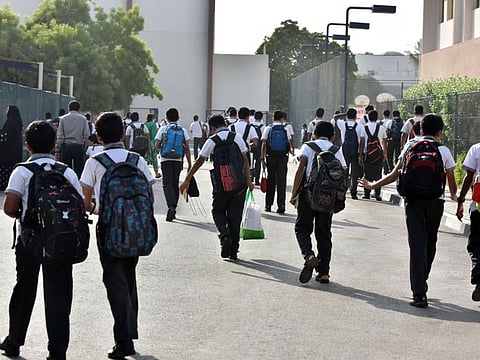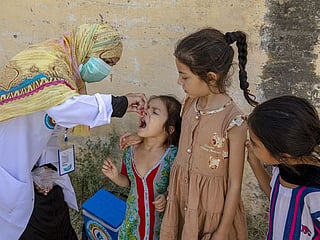COVID-19: UAE parents still awaiting final details on their kids’ return to school
Many prefer e-learning, but families with two working parents back full comeback

Dhabi: Schools across the UAE are set to open in a little more than two weeks from now, but parents are still unsure what the new term will look like. With many institutions yet to reveal final reopening models, parents are also unclear about how they will manage return to school from August 30.
In line with government regulations, UAE schools adopted distance learning in the previous school term as a means to limit the coronavirus outbreak. However, educational authorities announced at the start of the summer that in-class learning is expected to resume in one form or another next semester, ranging from full school days to blended models to full distance learning.
‘Multiple requests’
Last week, further updates saw the Abu Dhabi Department of Education and Knowledge (Adek) and Dubai’s Knowledge and Human Development Authority allowing parents to opt for full distance learning at private schools. Adek further stated that the choice had been made available “in response to multiple requests received from parents to continue distance learning”.
In general, however, most parents with older children or some level of child care at home appear to prefer a full distance learning model for their children. “We were very relieved to learn that schools in Abu Dhabi will offer a full distance-learning option for families who prefer it. My husband and I were very worried about sending our six-year-old back to school in the first place. We are now waiting to hear from the school about what the exact format of the classes will be,” Kadeeja Jishni, a homemaker and mother-of-two from India, told Gulf News.
The survey
Jishni said she regularly supervised her daughter’s learning last term and that she would be willing to do it again.
“She misses her friends, but we are simply not comfortable sending her to school when there are multiple ways she could be exposed to COVID-19, including the bus and washrooms,” she added.
A survey conducted by Abu Dhabi’s education regulator, the Abu Dhabi Department of Education and Knowledge (Adek), had also earlier revealed that more Emirati parents preferred distance learning, compared to expat parents.
“Thirty-nine per cent of Emirati parents [in Abu Dhabi] preferred the distance-learning option compared to 33 per cent of expatriate parents, which could be due to the fact that Emirati families have more household child-care assistance (74 per cent vs 26 per cent expats), and are more likely to be living with one or more vulnerable people (66 per cent Emirati compared to 31 per cent of expat families),” the Adek had said in a statement last month.
“My son is in Grade 10 at a British curriculum school, and I still prefer that he continues to attend classes from home,” said an Emirati businessman in the capital.
‘Feels reassuring’
A mother of a primary grade student in International School of Creative Science in Sharjah said the school has given parents the option to continue with distance learning if they want.
“We haven’t decided yet if we will send our child to school or continue with distance learning. On the one hand, we will save on school bus fees if we keep our child at home and it feels reassuring to have your child at home under these [COVID-19] circumstances. On the other hand, many parents are sending their children to school and it will also be good for our child to join classmates and teachers,” she added.
Families with two working parents, on the other hand, were mostly leaning towards in-class learning for their children.
“During the previous term, my wife and I were working from home. Our seventh grader adapted to the virtual classes fairly well. But the situation is different when I consider my younger daughter, aged five. I believe she would learn better in a classroom setting, but I also want to see the exact arrangements made to keep children safe,” said Alxandre Le Chef, 42, a French-Syrian public relations director.
“I would like to have a chance to inspect the facilities first, and if things go well in the first few days of in-class learning, we would continue. I also suggest that schools recruit additional teachers so that children can learn in small groups instead of being crowded in larger ones,” he said.







